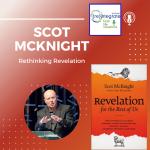By Hugh Whelchel
“May the favor of the Lord rest upon us; establish the work of our hands for us – yes, establish the work of our hands.” – Psalm 90:17
Last fall, hip-hop artist Lecrae Moore spoke at on the importance of engaging culture from a Christian perspective. Speaking at the 2012 Resurgence Conference, Moore told the audience:
“God has structured things for his glory and his goodness and humanity is directing it in evil or good ways. If you are going to engage culture, it’s about taking the things you are skilled at and asking, ‘how can I direct them in a good way?’”
Moore’s comments are part of a renewed interest among Christians regarding the biblical doctrine of work. This doctrine teaches that all things come under the Lordship of Christ, including the work of our vocations. Our work matters to God. As human beings created in the image of God, we work and create as a reflection of that image. The work of our hands is intended to serve three great ends:
- To glorify God.
- To serve the common good.
- To further the Kingdom of God.
What are the implications of this doctrine for Christians today?
- As Christians, our primary call is to follow Jesus. This call encompasses the whole of our lives, including our everyday work. This call should lead Christians to a radically different lifestyle, seeking not to follow the culture, but influence it for the glory of God.
- It is important to understand the mission we are called to carry out in this world. For Christians, life without work is meaningless, but work must never become the meaning of one’s life. Our identity is in Christ, not our work. It is our union with Christ which transforms our hearts and gives us the desire to serve him out of gratitude while we engage the world.
- The purpose of our work is to have a positive impact on culture. A prominent biblical metaphor is the bringing of light into a dark world (Matthew 5:16, John 1:5). When light is brought into a dark room, the room is transformed. The light of the gospel has the power to radically transform individual people and their culture as a whole.
The biblical doctrine of work is one of the most powerful means God provides for us to shape and influence culture. Yet today we hear many Christians say that we should not be involved in shaping culture.
People who say this are supporting the social status quo, whether they agree with it or not. Tim Keller had this to say in a recent essay:
“When Christians work in the world, they will either assimilate into their culture and support the status quo or they will be agents of change. This is especially true in the area of work. Every culture works on the basis of a “map” of what is considered most important. If God and his grace are not at the center of a culture, then other things will be substituted as ultimate values. So every vocational field is distorted by idolatry.”
When Christians do their jobs with excellence and accountability, in a distinctively Christian manner, they cannot help but have a profound effect on the world around them. Thomas Cahill, in his book How the Irish Saved Civilization, tells how Christian monks in the Middle Ages moved out of Ireland and through pagan Europe. Along the way, they established academies, universities, and hospitals. The monks transformed local economies and care for the poor and unfortunate through these new institutions.
The Irish monks’ goal was not to change the pagan culture into the church. Instead, their vocation was inspired by the gospel, and that changed the way they carried out their work. They worked for the flourishing of mankind, rather than strictly for themselves.
Christians today have a similar opportunity. If we are serious about the truth of Christianity, we need to engage in cultural renewal. Like Moore encourages, we need to “take the things we’re good at” and “direct them in a good way,” a way that serves the common good of our culture and the Kingdom, for the glory of God.
Question: What have you perceived to be the Church’s attitude towards the cultural status quo? Leave a comment here.
This post is part of a series on The Work of Our Hands.
- Part 2: You are Called to be a Servant
- Part 3: What We Can Learn About Sacrifice from John Calvin’s School of Death
- Part 4: Are You Young, Restless and Reformed?
- Part 5: Using Economics to Understand the Biblical Concept of Work
- Part 6: Our Calling to Reweave Shalom
- Part 7: Daniel, an Example of Reweaving Shalom
- Part 8: Our Calling to Restore Culture
- Part 9: Christ and Culture
- Part 10: It’s Personal: Tales of Comparative Advantage
- Part 11: Can Christians Today Really Impact Culture?
- Part 12: Getting Down to Business and Changing the World
- Part 13: How Do We Shape Culture?
- Part 14: Cultural Change – Is It Possible Today?
- Part 15: He Who Dies With The Most Toys Wins…Or Does He?
- Part 16: Fear of A Meaningless Life
- Part 17: Kingdom Work
- Part 18: The Power of Ideas
- Part 19: Putting It All Into Practice
- Part 20: A Wing and A Prayer
From The Institute for Faith, Work, and Economics. Image: Jennifer Woodruff Tait.













